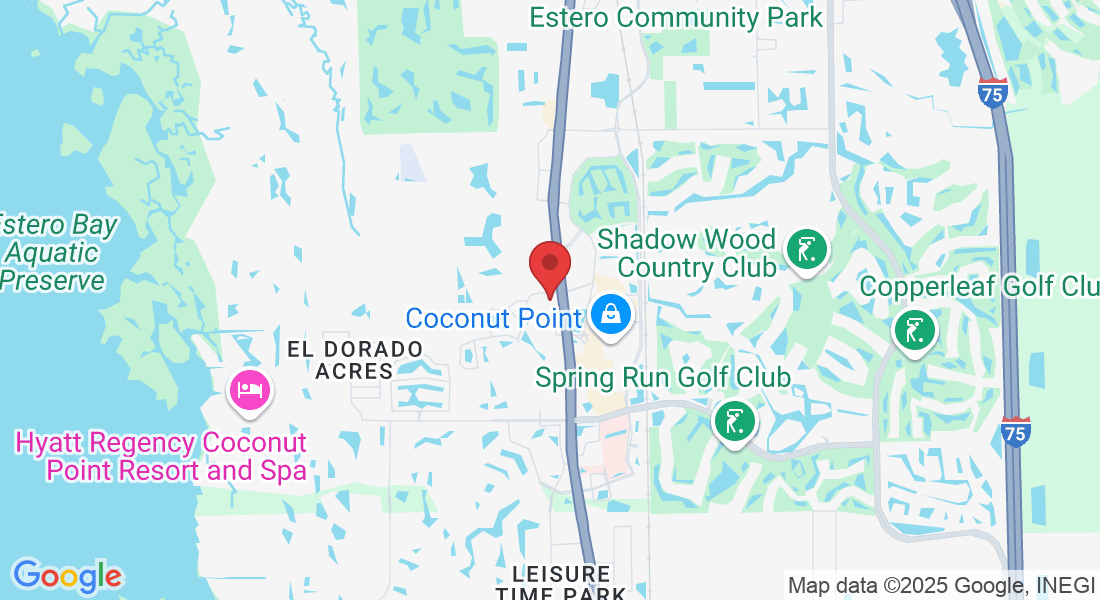Call Us: (239) 427-1455
We are NOT currently hiring. This site is for families seeking memory care services. For employment inquiries, visit our Indeed page.
Redefining Memory Care In Estero Florida
Choosing the right memory care community for a loved one is a deeply personal decision. At Gulf Coast Memory Care, conveniently located next to Coconut Point Shopping Center in Estero, Florida, we've created a haven of tranquility where residents can experience a luxurious and comfortable lifestyle. Let us help you make this important decision with confidence.
"Choose us with peace of mind; if within 90 days your heart pulls you elsewhere, we'll ensure a smooth transition and give your community fee back to help secure another place."
Your family's freedom to thrive is our top priority.

Award Winning Leadership

Understanding The Benefits Of Memory Care
Hear From Jen
We believe that exceptional care begins with open, honest, and ongoing communication. Families have direct access to our leadership and caregivers, including personal cell numbers, because staying informed should never be a struggle.
Every resident also receives a personalized care plan tailored to their needs, so families always stay connected.
Is It The Right Time For Memory Care?
Understanding that memory care is not a one-size-fits-all solution, we prioritize personalized care plans that adapt to each individual’s progression.
Learn more about senior care and get personalized results in this quick 5 minute survey.
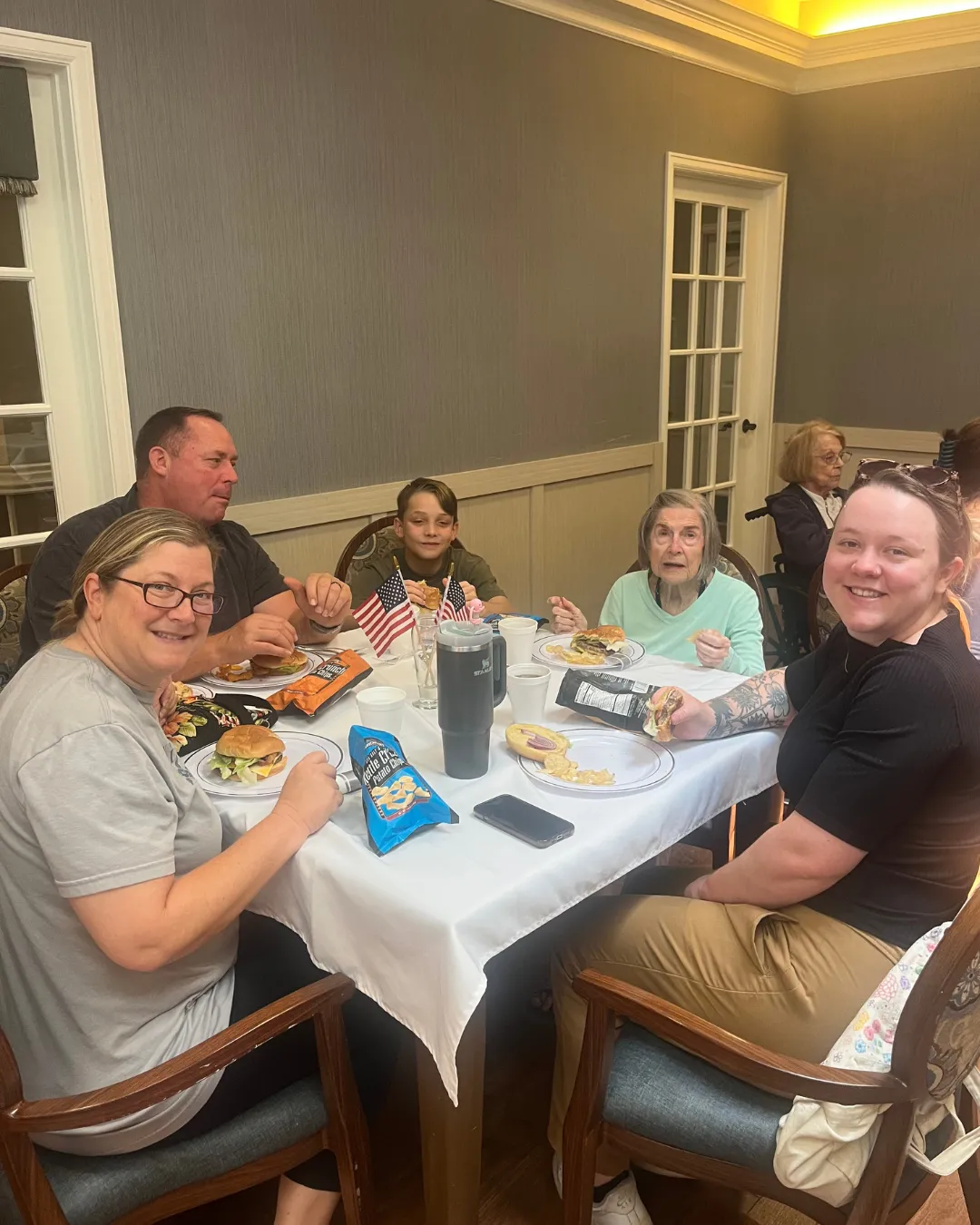
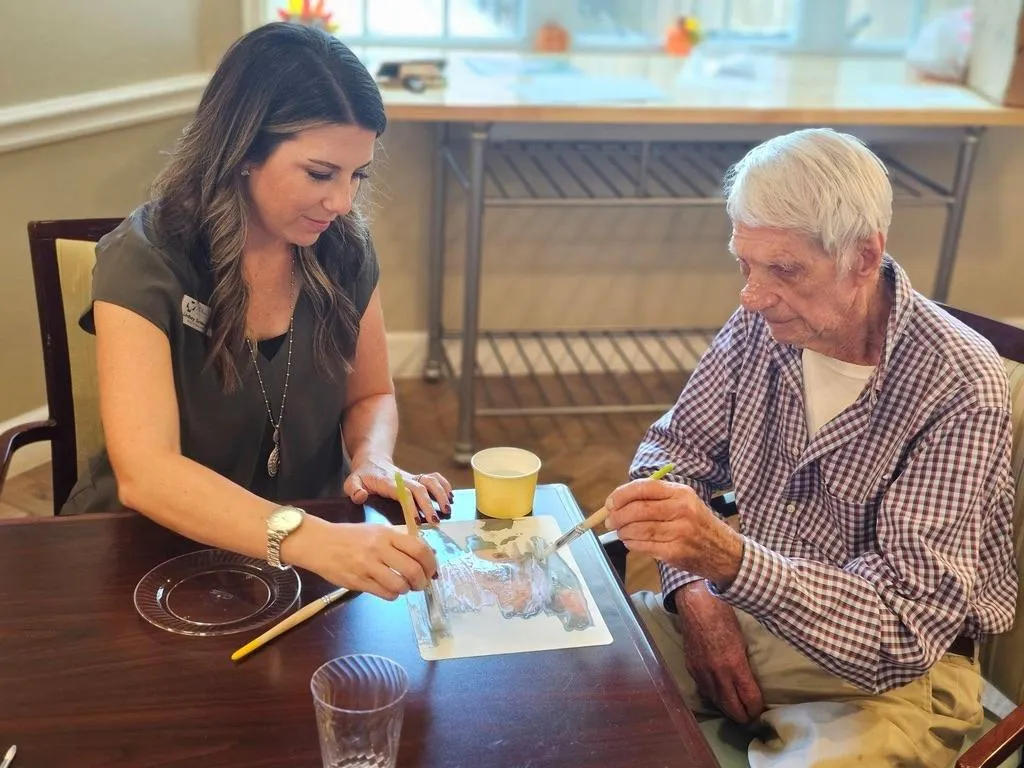
A Community For Alzheimer’s & Dementia Care
Families seeking Alzheimer’s and dementia support in Estero, Florida, can rely on our compassionate team for a community that truly cares.
Through ongoing training in the latest memory care practices and a commitment to safety, Gulf Coast Memory Care offers peace of mind for families and the highest standard of care for residents.
Love From Our Families


My mom moved into her new home a few weeks ago. I was able to visit with her this week while being in Florida and my gosh, I know she is right where she needs to be. Huge shoutout to Jerry, Diana, Paula, Kathy and Apryl. You are real life angels. The energy you bring is above and beyond. To see how you interact with not only my mom, but all the residents, it truly warms my heart. While it is heartbreaking to see my mom battle Alzheimer's, I know she is in the perfect place. She is safe and receiving the care she needs. <3 The place is clean, accommodating and most importantly feels like home. I love that there is a schedule and many activities for the residents to participate in. My mom has loved the painting and coloring
- Bill & Bonny B

Shelly Richardson

Upon entering this beautiful community, I was deeply impressed by the exceptional level of care and compassion demonstrated by all the caregivers. Every member of the team, from maintenance staff to the executive director, significantly contributes to the residents' quality of life. The interior courtyards offer a safe and beautiful outdoor escape for the residents, while the dining area is both elegant and spacious. GCMC stands out as one of the premier memory care centers I have ever visited.
- Bill & Bonny B


Exceptional dedication. Genuine care 24/7, everyone is doing a great job, from Management to the care team. Jerry and Diana are conducting the business, but you can see them walking the hallway and chatting with the residents, literally knowing everyone. There is an engine who works behind the scenes to have the day and night activity running smoothly. Family feeling, warmth, and genuine care, overall, 5 stars. Residents are never alone, there is always a pair of eyes to watch and hands ready to help as needed, but all is done in a certain way, so our loved ones don’t feel any loss of their independence. Beautifully done. The activities are not just lines on paper, everyone is involved. Food is first class.
- Bill & Bonny B
Our Senior Care Amenities
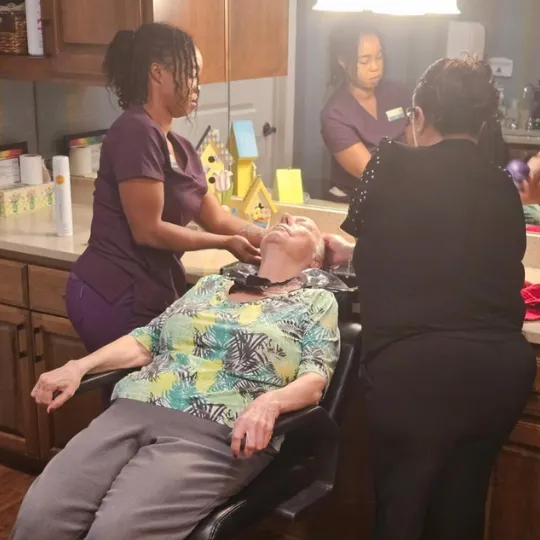
One-site beauty salon and barbershop
Personalized, chef-prepared meals
Customized activity programs
Craft and hobby room
Family living room
Full Library
Abundant natural light to minimize sundowning
Located next to Coconut Point Shopping Center
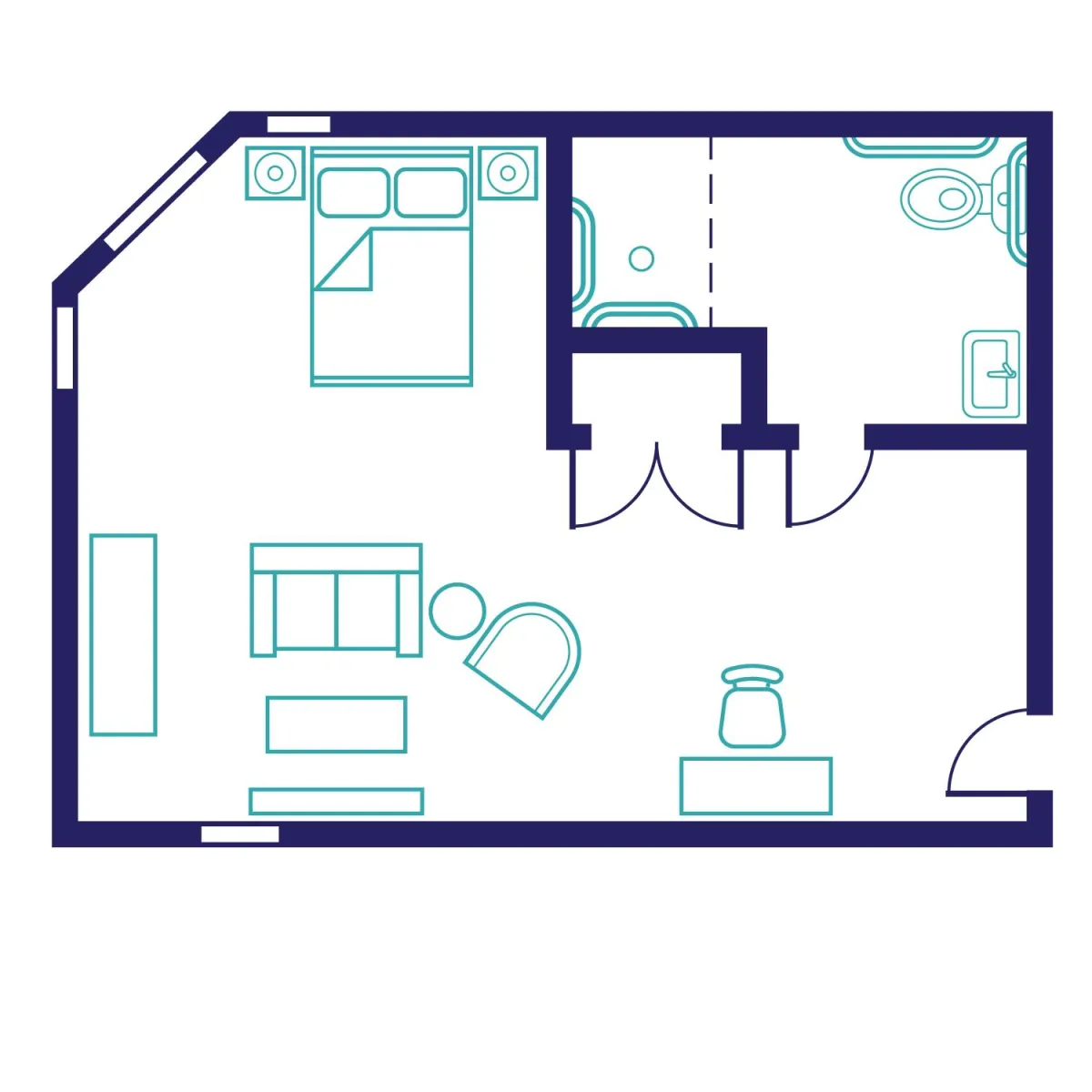
The Edison Suite
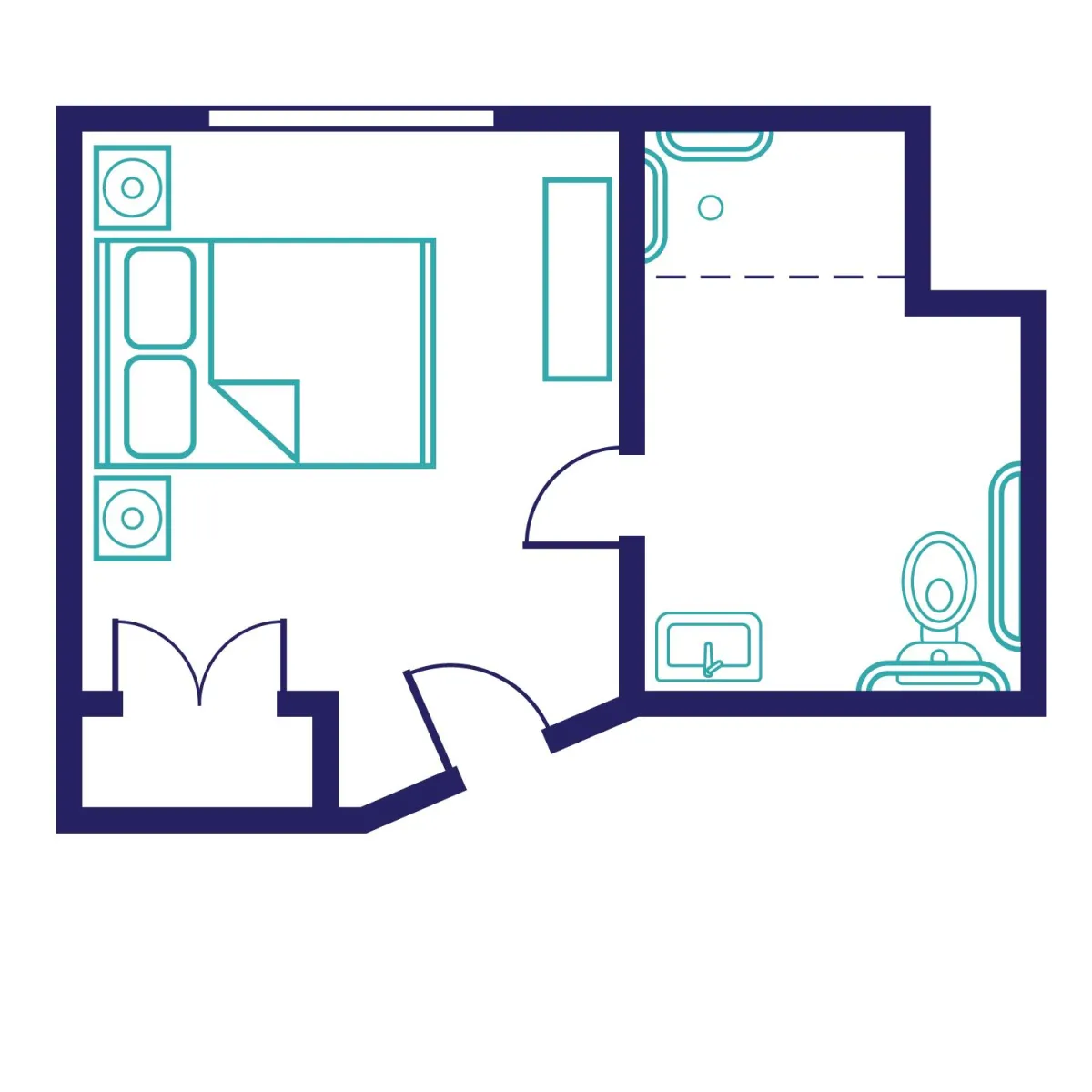
The Magnolia Suite
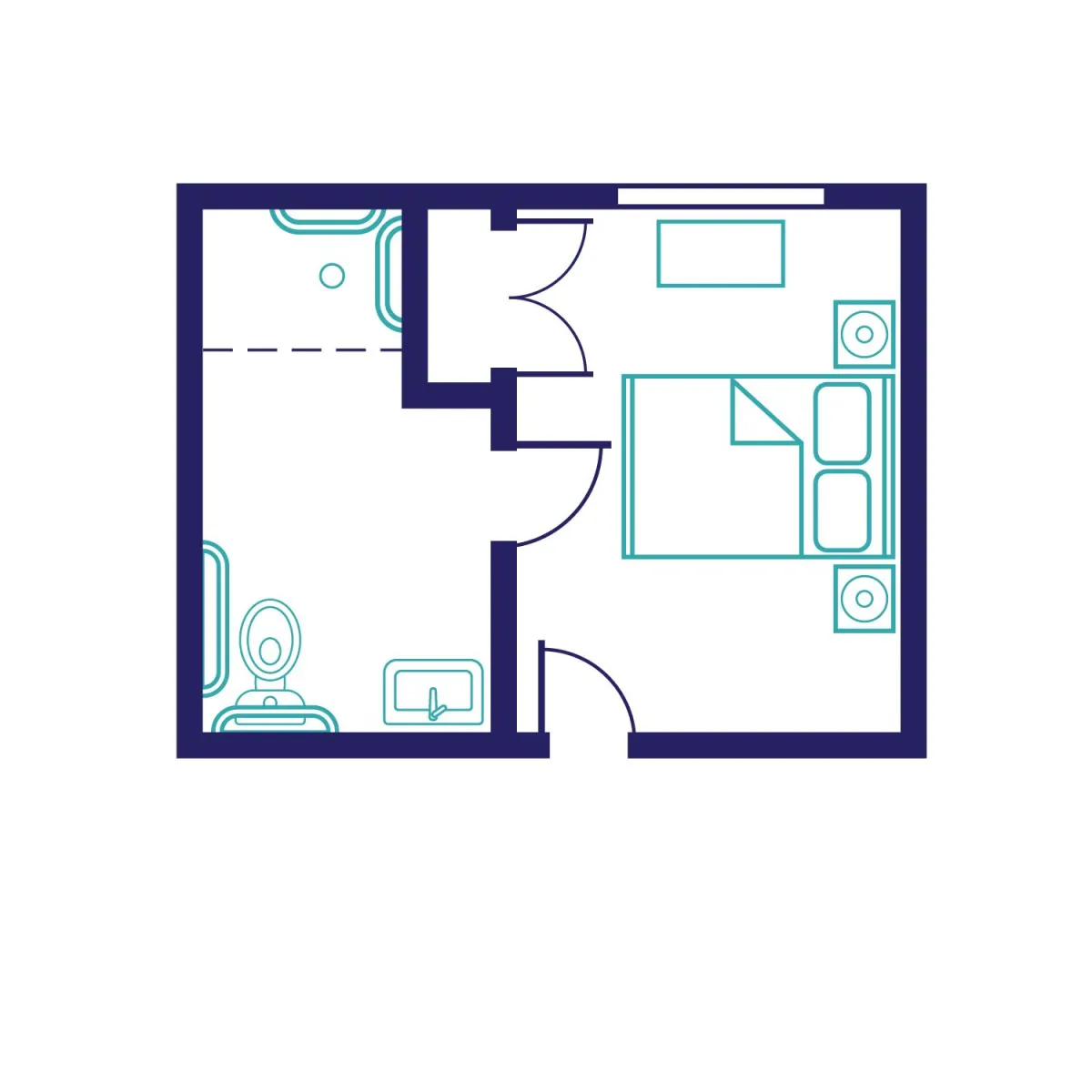
The Sugarberry Suite
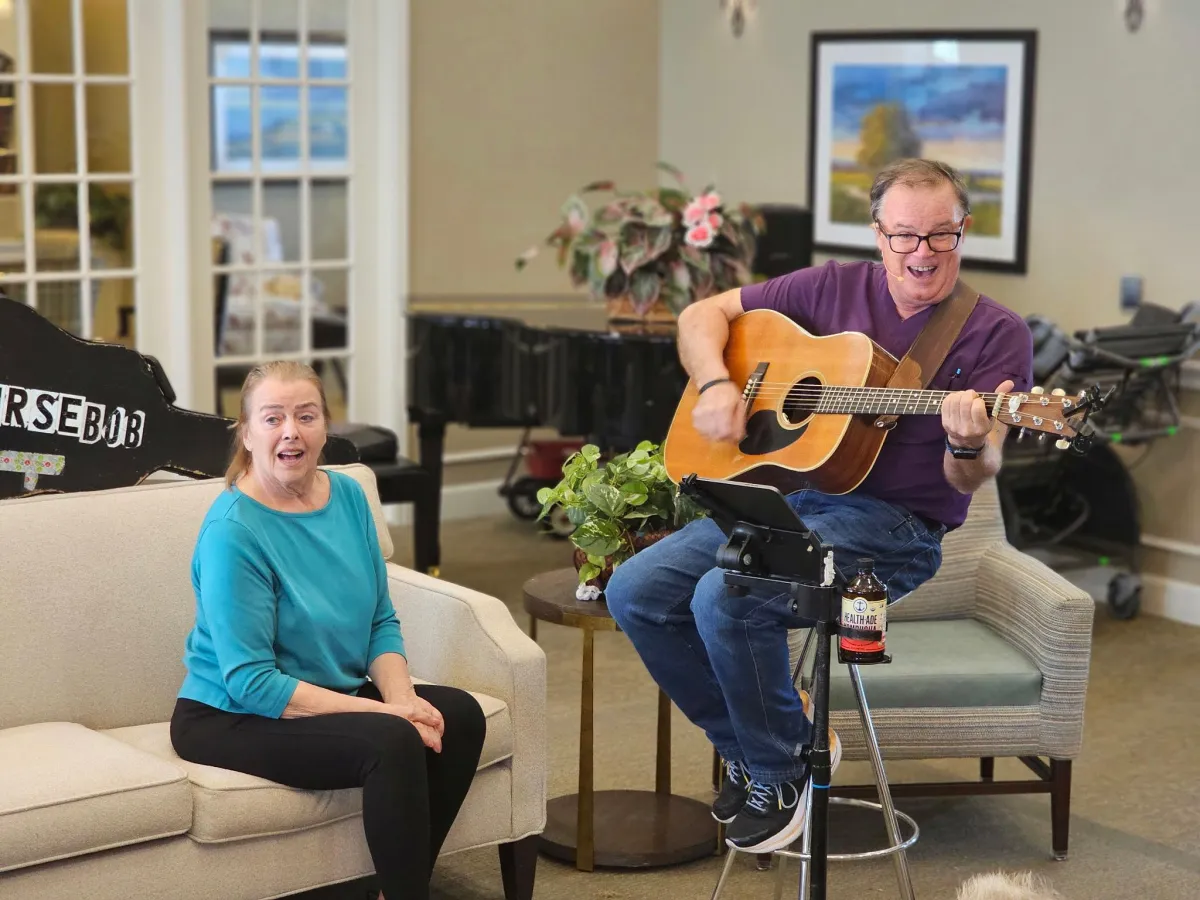
Engaging Residents With Meaningful Social Connections
We also prioritize activities that nurture both physical and mental wellness, from gentle exercise routines to social events that create a sense of community among residents. These carefully crafted programs are designed to boost mood, reduce anxiety, and encourage meaningful interactions, all of which contribute to a fulfilling lifestyle for those facing memory challenges.
Our Commitment To You
Our commitment extends to providing families with guidance and resources to understand memory loss and navigate the journey with confidence. Whether it’s through educational workshops or one-on-one consultations, we’re here to support families every step of the way, ensuring they feel connected and informed about their loved one’s care journey.
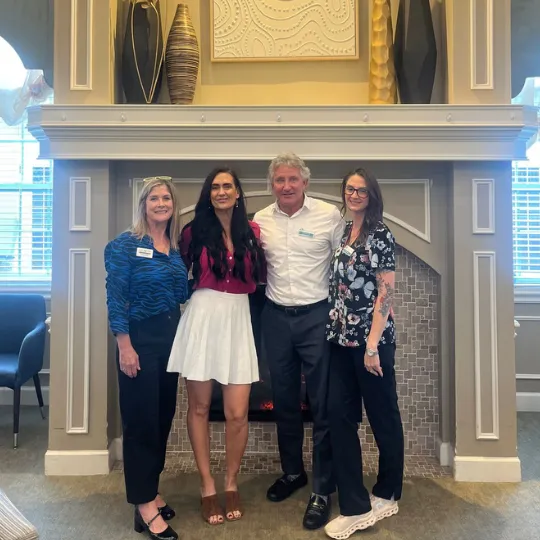
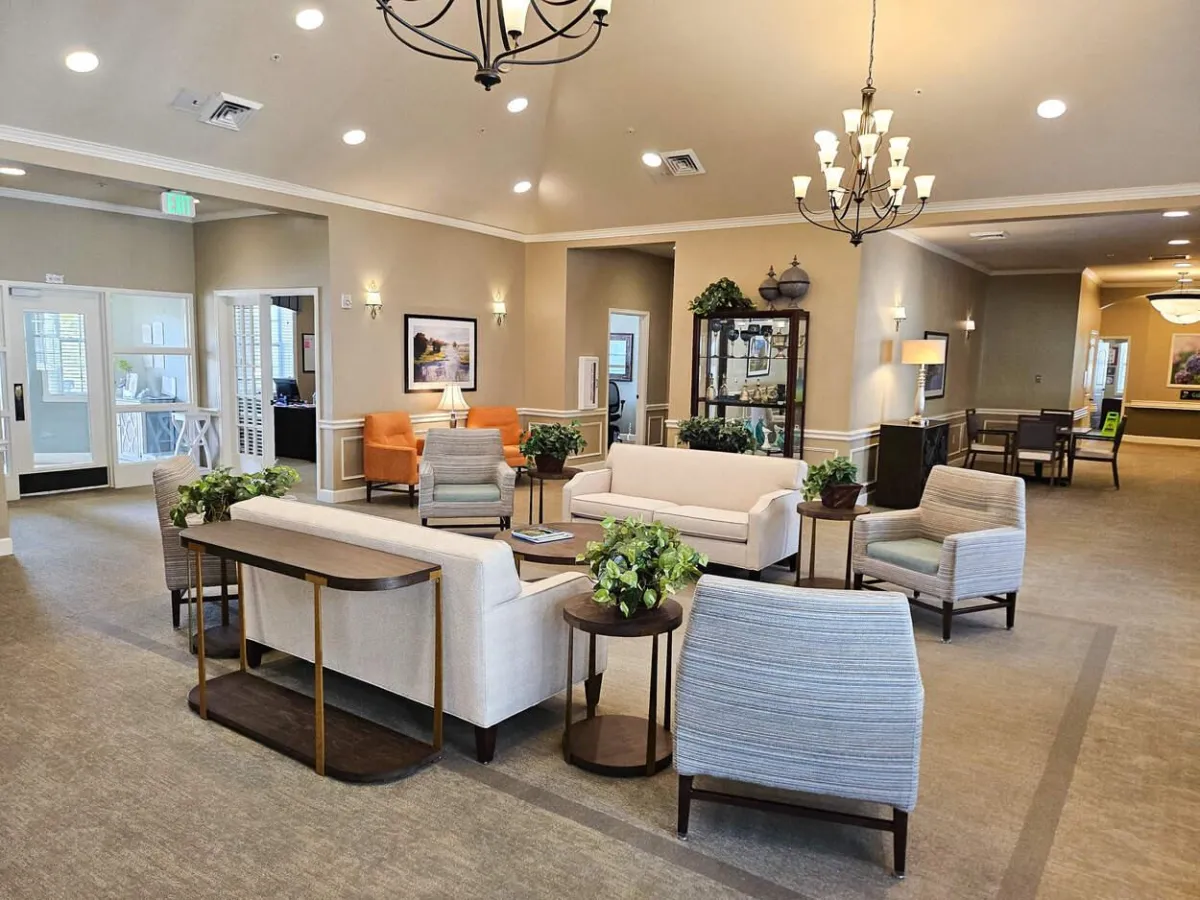
Are You Ready To Get Settled In?
Embark on a transformative experience at Gulf Coast Memory Care in Estero, Florida. We're not just a memory care community; we're a sanctuary where the mind, body, and spirit are nurtured. If you're seeking a place where compassion, care, and a deep respect for the human soul are paramount, you've found the right haven.
Check Out Our Blog
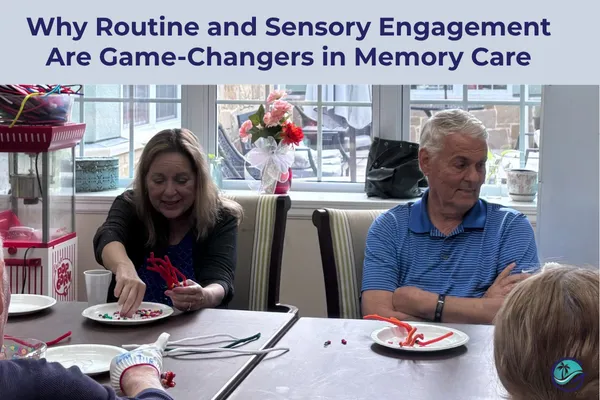
Why Routine and Sensory Engagement Are Game-Changers in Memory Care: A 2025 Guide for Families
Understanding the Power of Routine in Memory Care
The human brain, especially one affected by dementia, craves predictability. When memory deteriorates, the familiar becomes an anchor. A structured daily routine provides residents with a sense of control and security that can dramatically reduce anxiety, agitation, and behavioral challenges.
In 2025, leading memory care communities recognize that routine isn't about rigid scheduling—it's about creating a framework that allows residents to experience success and familiarity throughout their day. When a resident knows that breakfast happens at 8 AM, followed by a morning activity at 9:30 AM, and lunch at noon, their brain doesn't have to work as hard to process uncertainty. This cognitive relief translates into calmer, more engaged residents.
Research shows that residents who experience consistent routines have fewer episodes of sundowning (increased confusion and agitation in late afternoon), better sleep patterns, and improved appetite. For families, this means fewer crisis calls from the care community and the peace of mind that comes from knowing your loved one's day has structure and purpose.
The Sensory Component: Engaging More Than Just the Mind
Here's where memory care in 2025 is evolving beyond basic care: the integration of sensory therapy into daily routines.
As cognitive abilities decline, sensory experiences become increasingly important. Touch, smell, sound, sight, and taste can trigger memories, emotions, and engagement even when verbal communication becomes difficult. A resident in late-stage dementia may not remember their daughter's name, but they might light up at the smell of their favorite perfume or the texture of a familiar blanket.
Progressive memory care communities are now incorporating sensory activities into their daily routines:
Aromatherapy sessions using familiar scents (lavender for calm, citrus for energy)
Tactile activities like gardening, pet therapy, or working with textured materials
Music therapy tailored to each resident's era and preferences
Taste experiences featuring comfort foods from their past
Visual stimulation through art, nature, and color-coordinated environments
The magic happens when these sensory experiences are scheduled consistently. A resident who participates in a 9:30am 'Movin' & Groovin' session learns to anticipate it. Their brain begins to prepare for that experience, creating a positive feedback loop of engagement and emotional connection.
How Routine + Sensory Engagement Reduces Behavioral Challenges
One of the biggest concerns families have when placing a loved one in memory care is behavioral changes—aggression, wandering, resistance to care. Many of these behaviors aren't random; they're often a response to confusion, fear, or unmet sensory and emotional needs.
When a memory care community combines structured routine with sensory engagement, something remarkable happens: behavioral incidents decrease significantly.
Here's why: A resident who is confused and anxious (common in dementia) is more likely to act out. But a resident who experiences a predictable day filled with sensory engagement—activities that feel good, smell good, sound good—has fewer triggers for anxiety and agitation. They're not just passing time; they're experiencing moments of joy and connection.
For example, consider a resident with moderate dementia who typically becomes agitated during afternoon care routines. A community using routine + sensory engagement might:
Establish a consistent pre-care routine (same caregiver, same time, same preparation)
Incorporate sensory calming (soft music playing, familiar scent in the room, gentle touch)
Use positive reinforcement (favorite snack after care, praise, familiar activity to follow)
The result? The resident's resistance decreases, care becomes easier, and the resident experiences less distress.
The Family Benefit: What to Look For in a Memory Care Community
When evaluating memory care options for your loved one, ask these specific questions:
About Routine:
What does a typical day look like? (Ask for a written schedule)
Check out our blog: The Rhythm of Life: How Our Daily Schedule Brings Comfort, Connection, and Joy to Memory Care at Gulf Coast Memory Care
How consistent are mealtimes, activities, and care routines?
What happens if a resident resists the routine?
About Sensory Engagement:
What sensory activities are offered? (Ask for specific examples)
How are these activities personalized to individual residents?
Do staff members know residents' sensory preferences (favorite music, scents, textures)?
Is there a dedicated sensory or activity program?
Integration:
How are sensory activities incorporated into the daily routine?
Do staff members receive training on sensory engagement techniques?
Are families involved in identifying sensory preferences?
Real-World Impact: What Families Report
Families whose loved ones are in memory care communities that prioritize routine and sensory engagement consistently report:
Fewer behavioral incidents at home during visits
Better sleep and appetite
Increased engagement with staff and other residents
Reduced medication needs for anxiety or agitation
More positive phone calls from the facility
Better quality of life overall, even as cognitive decline continues
The Bottom Line: Routine and Sensory Engagement Aren't Luxuries
In 2025, quality memory care recognizes that routine and sensory engagement aren't nice-to-haves—they're essential components of dignified, compassionate care. They're the difference between a resident who is merely safe and a resident who is engaged, calm, and experiencing moments of joy.
As you navigate the memory care landscape, remember: the best communities don't just manage dementia; they create environments where residents can thrive within the reality of their condition. Routine provides the structure their brain needs, and sensory engagement provides the connection their spirit needs.
When you find a memory care community that truly understands and implements both, you've found a place where your loved one won't just be cared for—they'll be valued.

Why Routine and Sensory Engagement Are Game-Changers in Memory Care: A 2025 Guide for Families
Understanding the Power of Routine in Memory Care
The human brain, especially one affected by dementia, craves predictability. When memory deteriorates, the familiar becomes an anchor. A structured daily routine provides residents with a sense of control and security that can dramatically reduce anxiety, agitation, and behavioral challenges.
In 2025, leading memory care communities recognize that routine isn't about rigid scheduling—it's about creating a framework that allows residents to experience success and familiarity throughout their day. When a resident knows that breakfast happens at 8 AM, followed by a morning activity at 9:30 AM, and lunch at noon, their brain doesn't have to work as hard to process uncertainty. This cognitive relief translates into calmer, more engaged residents.
Research shows that residents who experience consistent routines have fewer episodes of sundowning (increased confusion and agitation in late afternoon), better sleep patterns, and improved appetite. For families, this means fewer crisis calls from the care community and the peace of mind that comes from knowing your loved one's day has structure and purpose.
The Sensory Component: Engaging More Than Just the Mind
Here's where memory care in 2025 is evolving beyond basic care: the integration of sensory therapy into daily routines.
As cognitive abilities decline, sensory experiences become increasingly important. Touch, smell, sound, sight, and taste can trigger memories, emotions, and engagement even when verbal communication becomes difficult. A resident in late-stage dementia may not remember their daughter's name, but they might light up at the smell of their favorite perfume or the texture of a familiar blanket.
Progressive memory care communities are now incorporating sensory activities into their daily routines:
Aromatherapy sessions using familiar scents (lavender for calm, citrus for energy)
Tactile activities like gardening, pet therapy, or working with textured materials
Music therapy tailored to each resident's era and preferences
Taste experiences featuring comfort foods from their past
Visual stimulation through art, nature, and color-coordinated environments
The magic happens when these sensory experiences are scheduled consistently. A resident who participates in a 9:30am 'Movin' & Groovin' session learns to anticipate it. Their brain begins to prepare for that experience, creating a positive feedback loop of engagement and emotional connection.
How Routine + Sensory Engagement Reduces Behavioral Challenges
One of the biggest concerns families have when placing a loved one in memory care is behavioral changes—aggression, wandering, resistance to care. Many of these behaviors aren't random; they're often a response to confusion, fear, or unmet sensory and emotional needs.
When a memory care community combines structured routine with sensory engagement, something remarkable happens: behavioral incidents decrease significantly.
Here's why: A resident who is confused and anxious (common in dementia) is more likely to act out. But a resident who experiences a predictable day filled with sensory engagement—activities that feel good, smell good, sound good—has fewer triggers for anxiety and agitation. They're not just passing time; they're experiencing moments of joy and connection.
For example, consider a resident with moderate dementia who typically becomes agitated during afternoon care routines. A community using routine + sensory engagement might:
Establish a consistent pre-care routine (same caregiver, same time, same preparation)
Incorporate sensory calming (soft music playing, familiar scent in the room, gentle touch)
Use positive reinforcement (favorite snack after care, praise, familiar activity to follow)
The result? The resident's resistance decreases, care becomes easier, and the resident experiences less distress.
The Family Benefit: What to Look For in a Memory Care Community
When evaluating memory care options for your loved one, ask these specific questions:
About Routine:
What does a typical day look like? (Ask for a written schedule)
Check out our blog: The Rhythm of Life: How Our Daily Schedule Brings Comfort, Connection, and Joy to Memory Care at Gulf Coast Memory Care
How consistent are mealtimes, activities, and care routines?
What happens if a resident resists the routine?
About Sensory Engagement:
What sensory activities are offered? (Ask for specific examples)
How are these activities personalized to individual residents?
Do staff members know residents' sensory preferences (favorite music, scents, textures)?
Is there a dedicated sensory or activity program?
Integration:
How are sensory activities incorporated into the daily routine?
Do staff members receive training on sensory engagement techniques?
Are families involved in identifying sensory preferences?
Real-World Impact: What Families Report
Families whose loved ones are in memory care communities that prioritize routine and sensory engagement consistently report:
Fewer behavioral incidents at home during visits
Better sleep and appetite
Increased engagement with staff and other residents
Reduced medication needs for anxiety or agitation
More positive phone calls from the facility
Better quality of life overall, even as cognitive decline continues
The Bottom Line: Routine and Sensory Engagement Aren't Luxuries
In 2025, quality memory care recognizes that routine and sensory engagement aren't nice-to-haves—they're essential components of dignified, compassionate care. They're the difference between a resident who is merely safe and a resident who is engaged, calm, and experiencing moments of joy.
As you navigate the memory care landscape, remember: the best communities don't just manage dementia; they create environments where residents can thrive within the reality of their condition. Routine provides the structure their brain needs, and sensory engagement provides the connection their spirit needs.
When you find a memory care community that truly understands and implements both, you've found a place where your loved one won't just be cared for—they'll be valued.
Come Visit Us
We can't wait to hear from you! Fill out our contact form to get started or if you would like to see our community for yourself, schedule a tour here.
Gulf Coast Memory Care
(239) 427-1455
22900 Lyden Dr, Estero, FL 33928
AL# 12921
Privacy Policy | Accessibility Statement | Visitation Policy

